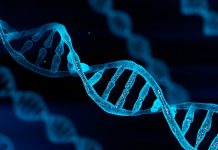A new project is expected to help us understand diseases such as cancer and dementia. A major partnership involving Oxford Nanopore Technologies, UK Biobank, NHS England, Genomics England, and the UK government has made this possible
This partnership hopes to create a first-of-its-kind “epigenetic map” of the human genome, a resource that could offer new insights into the causes of these devastating diseases.
How environmental factors influence gene expression
The project will use Oxford Nanopore’s cutting-edge genetic sequencing technology to analyse 50,000 samples from the UK Biobank, one of the world’s most comprehensive health datasets. By combining detailed genetic data with information about lifestyle, imaging, and other health factors, the initiative will provide the first comprehensive picture of epigenetic modifications across the human genome.
Epigenetics is an up-and-coming field of study that examines how environmental factors and lifestyle choices can influence gene expression without changing the DNA sequence itself.
This means that while the genetic code remains the same, the way our genes function can be modified by things like diet, pollution, smoking, or UV exposure. These changes, known as epigenetic modifications, can play a significant role in disease development, including cancer, dementia, and heart disease.
Epigenetic modifications and disease development
Understanding epigenetics is important because it could reveal why some people develop certain diseases while others do not, even when they share the same genetic makeup. For example, studies have shown that cancer progression is not solely determined by inherited mutations in DNA but also by epigenetic changes that influence how genes are expressed in cancer cells.
By better understanding these changes, researchers hope to uncover new approaches to treatment and prevention, potentially leading to more personalised, effective therapies for patients.
The new epigenetic map will provide researchers with a lot of data, helping them to explore how lifestyle and environmental factors contribute to disease. At the moment a lot of the available epigenetic data is limited, but this new project will create a dataset large in detail and containing a variety of useful data.
This could provide the key to unlocking the molecular mechanisms behind major diseases, giving scientists a better understanding of how diseases develop over time.
Dementia and cancer diagnosis
Cancer remains one of the leading causes of death worldwide, and understanding the epigenetic factors that contribute to its development could help create new diagnostic tools and treatments. By identifying the environmental and lifestyle factors that influence gene expression in cancer, this research could also help to improve early detection and personalised treatment strategies.
The partnership also has the potential to advance the field of dementia research. Dementia, including Alzheimer’s disease, has a huge impact on individuals and families, and its causes are still not fully understood. By analysing how epigenetic changes affect the brain, scientists hope to uncover new insights into how dementia develops, which could ultimately lead to better prevention and therapeutic options.
This project is part of the UK government’s wider effort to boost the country’s life sciences sector and promote innovative healthcare solutions. The collaboration with Oxford Nanopore, a leading British biotech company, shows the government’s commitment to supporting cutting-edge research and helping to drive economic growth through technological advancements. The UK Biobank, with its wide collection of health data from half a million volunteers, serves as a valuable resource for researchers and will play a central role in this initiative.
The epigenetic map created by this project could revolutionise how we approach the diagnosis and treatment of diseases, offering new hope for patients and families affected by conditions like cancer and dementia.








